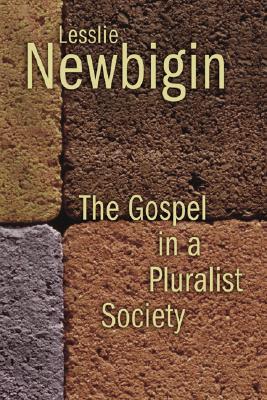Effectively Engaging Pluralism and Postmodernism in a So-Called Post-Christian Culture

Postmodernism, The Church, and The Future
A Pneuma Review discussion about how the church should respond to postmodernism
A Review Essay of Lesslie Newbigin’s The Gospel in a Pluralist Society.
“Pluralist!” “Postmodern!” Lately these two terms are increasingly, and sometimes carelessly, bandied about as especially descriptive of the present age. They signify such complex concepts that sometimes even defining the terminology can be difficult. To make matters even more intimidating for many of us, pluralism and postmodernism also exist in both religious and secular forms with widely variant philosophical, political, and theological schools of thought and levels of radicality. In fact, they may be descriptive of an even deeper seated condition of being post-Christian. “Post-Christian” describes a personal or societal world view no longer rooted in the language and assumptions of Christianity, though it previously originated and existed in, and thus emerged from, that environment. Importantly, a wide range of continuing attitudes from open embrace to complete exclusion exist toward Christianity itself.1 Yet the basic meaning of pluralism and postmodernism is understood easily enough. “Pluralism” at its most fundamental level simply observes the fact “that there is an actual plurality of religious and other beliefs, practices, and so on in the world.” It proceeds from that point to varying degrees of representation either embracing or eschewing implications of that acknowledgment.2 “Postmodernism” essentially identifies a disposition questioning the Enlightenment/Modernist argument for the sovereignty and ubiquity of reason as being reductionist at best and dismissive of or skewed against other important elements of reality (e.g., imagination, intuition, tradition) at worst. Again, it proceeds from that point to varying degrees of representation either embracing or eschewing implications of that acknowledgment.3 Christians are currently divided about the consequences of these paradigmatic developments. Some are hopeful about possibilities while others are fearful of pitfalls.4 At this point, humbly admitting that I’m not an expert or authority in these matters may be helpful; at least, it will certainly be honest. I’m more or less a typical pastor and preacher struggling to make sense out of today’s world. I suppose that is why I find Newbigin so challenging and stimulating.

Lesslie Newbigin, The Gospel in a Pluralist Society (Eerdmans, 1989), 264 pages, ISBN 9780802804266.
Lesslie Newbigin (1909-98) was truly one of the towering figures of the twentieth century when it comes to the theory and practice of Christian mission. And this book is his now classic contribution to that increasingly complex and controversial endeavor. A native of Great Britain educated at Cambridge, as a young man he was converted from agnosticism to Christianity when he saw a vision of a huge cross touching heaven and earth. A man of boundless energy and profound intellect, Newbigin then spent nearly four decades as a missionary in India, also building a lasting reputation as a great ecumenical leader. Although he himself humbly claims to be only “a pastor and preacher” he is often hailed by others as a scholar and thinker.5 The Gospel in a Pluralist Society is in fact a clear and cogent articulation of how contemporary paradigm shifts such as pluralism and postmodernism may inform and influence Christian identity and ministry in what is now sometimes called a post-Christian society.6 One would be hard pressed to find another book that takes more seriously or navigates more skillfully both commitment to historic Christianity and engagement of contemporary cultural contexts. It is a must read for anyone intending to integrate those same ideas today. At times provocative, always informative, seriously studying it promises to be potentially transformative. Therefore, be warned: one reads at a certain (worthwhile) risk!


